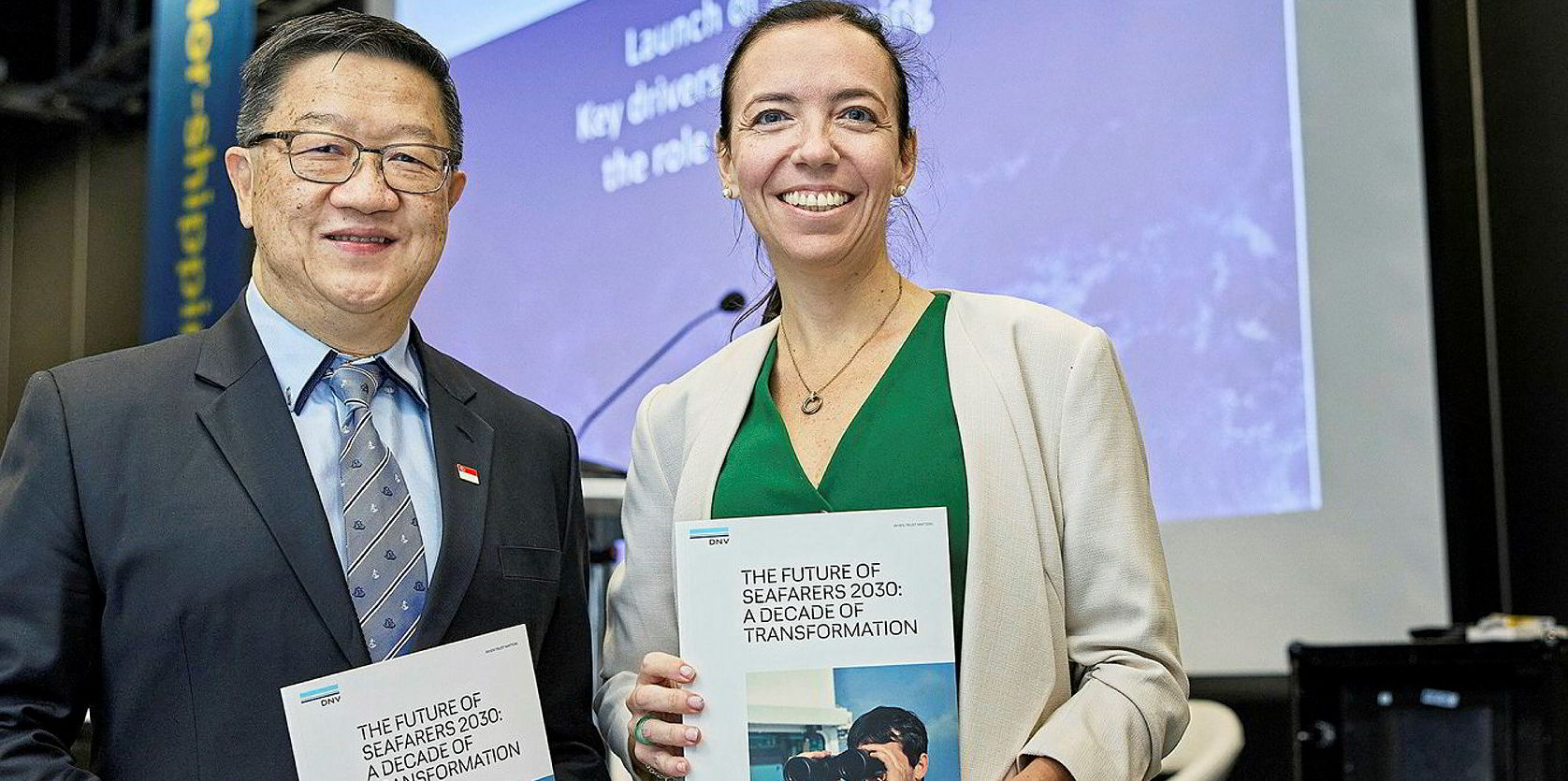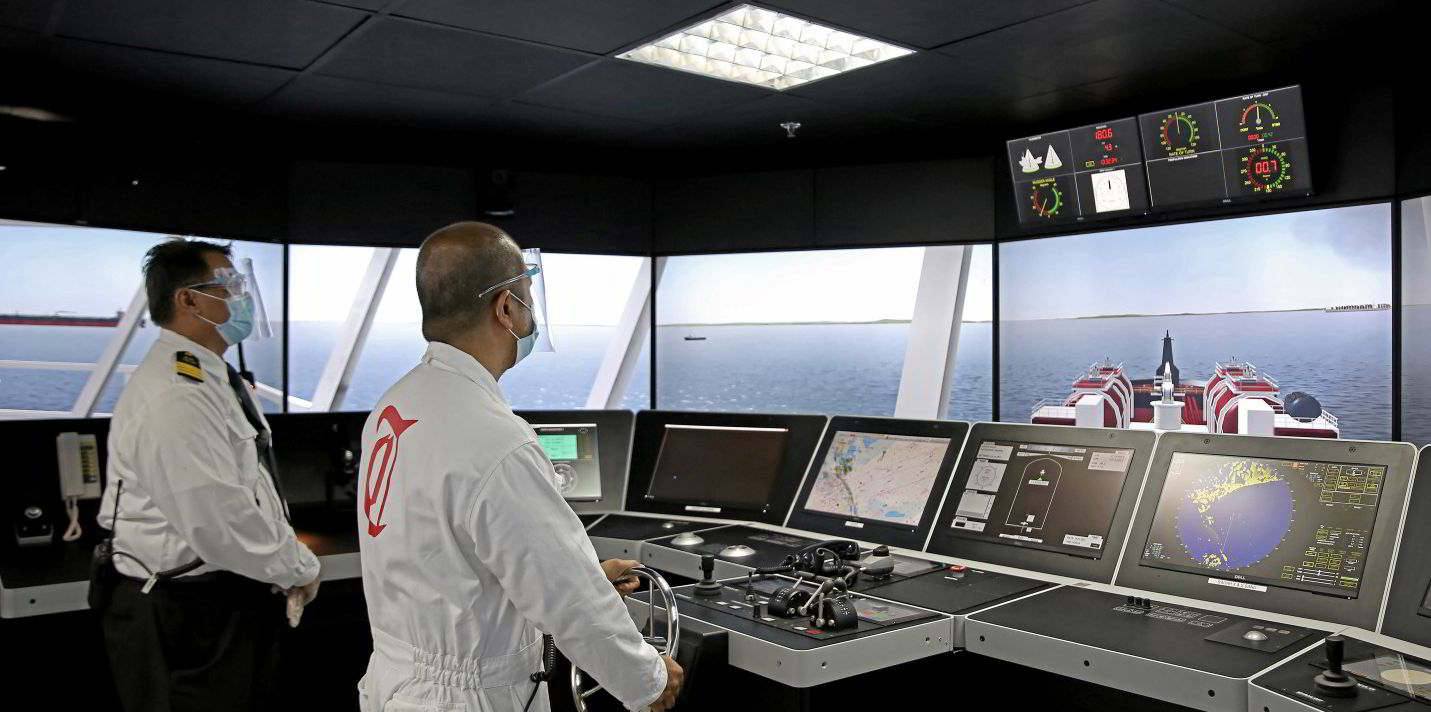A study commissioned by the Singapore Maritime Foundation (SMF) is calling for the urgent upskilling of seafarers to cope with the demands of decarbonisation and digitalisation.
The report, undertaken by classification society DNV, found that the training will be urgently required, as 33.2% of new ships on order today are ready to run on alternative fuels
The International Maritime Organization is also set to increase its decarbonisation target for shipping to achieve zero greenhouse gas emissions by 2050.
The report — The Future of Seafarers 2030: A Decade of Transformation — included a survey of 500 seafarers, in which 81% indicated they would need additional training to handle future technology on board ships.
And 87% said they would need extra training for new fuels such as ammonia, methanol and hydrogen.
SMF chairman Hor Weng Yew said: “It is essential that we begin by understanding where the competency gaps are, areas of training most needed, and then work as an industry to equip seagoing professionals with the transition and future skills needed to safely and effectively operate the new-fuelled types of ships that are coming into service.”
The study recommends that seafarer training should be prioritised for fuels that are most likely to be predominant in this decade.
It also suggests that regulatory bodies, shipowners, operators, managers and training academies should carefully assess and target skill deficits in digitalisation and decarbonisation to ensure seafarers are ready for the future.
One solution, according to the report, could be that maritime training academies focus on providing basic shipboard skills, while operators focus on delivering fuel-specific and vessel-specific training.
On the theme of digitalisation, two-thirds of seafaring officers said more advanced technology on board would make their job easier.
DNV said the new training requirements could also help promote recruitment and increase retention of seafarers.
“Upskilling seafarers will not only enable them to execute additional monitoring and maintenance tasks on board but can also be leveraged upon to improve attraction and retention in the industry,” said Cristina Saenz de Santa Maria, regional manager, South East Asia, Pacific & India, at DNV Maritime.





